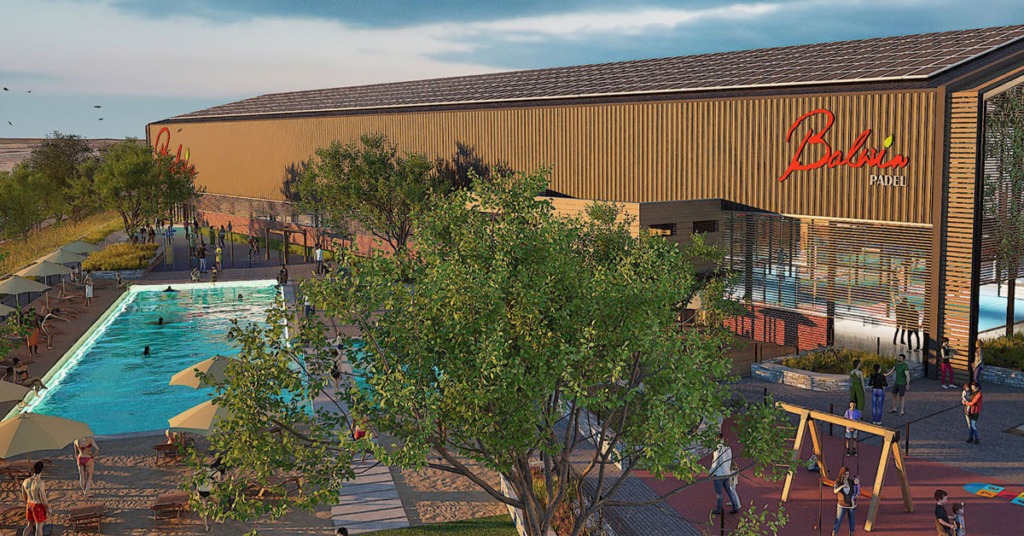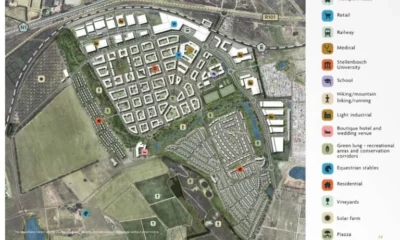Business
Gauteng’s R84 Billion Mooikloof Smart City: The Future of South African Urban Living

A City Built for the Future
In the heart of Gauteng, cranes are rising over the East of Tshwane as Balwin Properties begins shaping what could become one of South Africa’s most ambitious developments yet. Valued at R84 billion, the Mooikloof Smart City is more than just another housing project. It’s a new kind of city, one built around sustainability, digital infrastructure, and accessibility for South Africans across income levels.
Originally announced in 2020 as part of the government’s Strategic Integrated Projects (SIPs), Mooikloof was identified as a cornerstone of the country’s long-term urban transformation plan. Five years later, that plan is finally coming to life in concrete and steel.
From Blueprint to Reality
According to Balwin’s latest interim results (for the six months ending August 2025), construction activity has accelerated significantly. Over 14 000 residential units are planned for the site, which will eventually include schools, shopping hubs, and healthcare facilities.
But what makes this development stand out is its green design. Each unit will feature energy-efficient appliances, water-saving systems, and advanced insulation to stabilise temperatures and cut electricity use, a vital advantage in a country where energy supply remains unpredictable.
Balwin has already invested R71.3 million in infrastructure in just six months, including upgraded roads, stormwater networks, and expanded water and electrical systems. These are the invisible foundations that turn an empty plot into a functioning city.
Boost from Global Investors
Earlier this year, the International Finance Corporation (IFC), part of the World Bank Group, gave the project a major vote of confidence by investing R1 billion (around $58 million). IFC Regional Director Cláudia Conceição said the funding will expand access to quality housing for low- and middle-income South Africans, reinforcing Mooikloof’s promise as an inclusive urban space rather than an elite enclave.
This support marks one of the largest housing-related international investments in South Africa in recent years and reflects growing confidence in the country’s property sector after a challenging few years.
Economic Recovery Fuels Growth
Balwin’s own financial results paint a picture of cautious optimism. The group reported R1.2 billion in revenue for the first half of 2025, up 44% from the previous year, with profits rising 33% to R102.4 million. The improved performance was driven by an increase in apartment sales and a recovery in consumer demand as inflation eased and interest rates dropped slightly.
Even so, the company is keeping a tight rein on spending, prioritising debt reduction and continued investment in infrastructure rather than declaring an interim dividend. It’s a pragmatic move that reflects the long-term nature of the Mooikloof project.
Building a Smarter Gauteng
For residents of Gauteng, South Africa’s economic powerhouse, the Mooikloof Smart City represents both a physical and symbolic shift. It’s a glimpse of how large-scale, environmentally conscious urban design could redefine the province’s future.
From its roads to its rooftops, Mooikloof is being built to prove that South African cities can be both sustainable and inclusive. If successful, it could serve as a blueprint for smart developments across the country, a modern city rising from the dust, with room for everyone.
Follow Joburg ETC on Facebook, Twitter, TikT
For more News in Johannesburg, visit joburgetc.com
Source: Business Tech
Featured Image: Business Tech

















